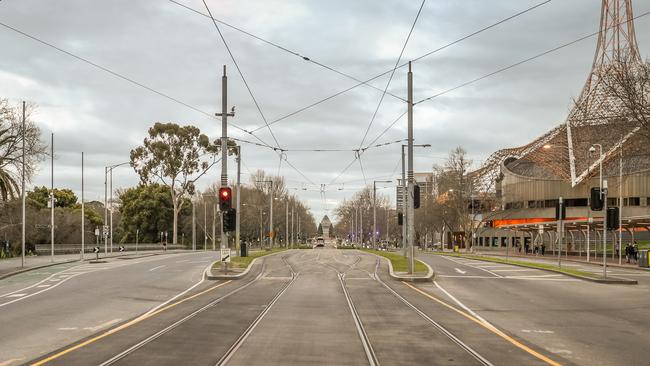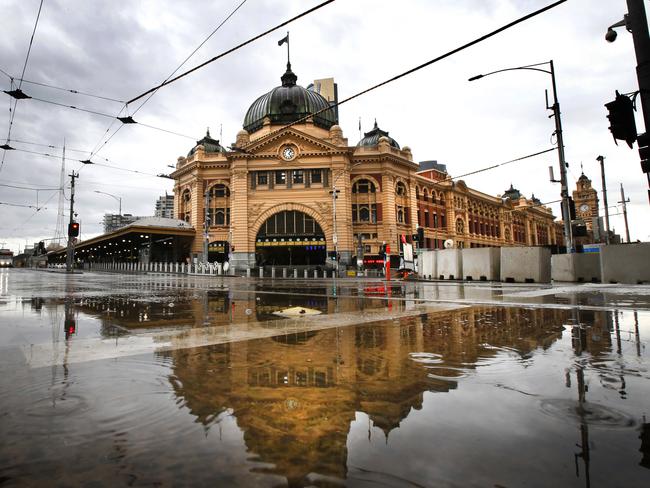James Campbell: Is a Covid probe with no lockdowns chapter even an inquiry?
According to the long-awaited Covid inquiry, Melburnians should be patting themselves on the back for leading the way globally for their “population-level, non-pharmaceutical interventions” during the pandemic.

James Campbell
Don't miss out on the headlines from James Campbell. Followed categories will be added to My News.
Victorians could be forgiven for thinking a Covid inquiry that doesn’t have lockdowns at its centre and definitively answer whether what we endured was necessary is barely a Covid inquiry at all.
But while there are chapters on the pandemic’s impact on Aboriginal and Torres Strait Islanders, children and young people, culturally and linguistically diverse communities and (even though men were more likely to catch and die from the virus) women, apparently there was no room for a chapter on lockdowns.
Instead peppered throughout the section dealing with health response to Covid-19 there is discussion of what are euphemistically described “population-level non-pharmaceutical interventions”.

The report finds that early in the crisis the modelling of the Doherty Institute and later Australian Health Protection Principal Committee supported the decisions governments were taking.
But in what would be the hands-down winner of any competition for ‘understatement of the year’, it continues, that “as the pandemic wore on, it became less clear what evidence was being used to support the continued use of these measures.”
The report also finds governments were not keen to listen to outside advice on how these “population-level non-pharmaceutical interventions” were travelling or as it politely puts it “research capability and expertise outside government was not fully leveraged to complete real-time evaluation of these measures or the general impacts of Covid-19.”

Melburnians should apparently give themselves a pat on the back because the 112 days they endured during the longest of our multiple lockdowns – the final 30 days of which there were either single digit or zero cases – “is one of the few examples globally of an extended Covid-19 outbreak where the virus was eliminated through the application of non-pharmaceutical interventions.”
Against this, the report finds the impacts of the measures we endured “were not appropriately considered given these measures continued to be applied once the risk – benefit balance had shifted and proportionality was harder to argue.”
You can say that again.
Victorians could also be forgiven for worrying there is nothing to stop all this happening again, especially as its criticism of the Victorian Government in this space is confined to noting that given “the challenges non-pharmaceutical interventions pose to individuals and communities – especially the more stringent measures such as lockdowns – it is critical that active consideration is given to whether the interventions are proportionate or remain so.”
These measures “must be recognised and protected as a finite resource to be preserved for times of greatest need.”
Amen to that.



